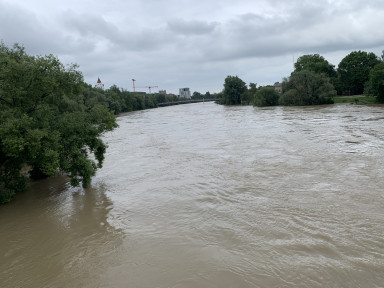

Stephan
Zilkens
,
Zilkens‘ News Blog 24 2024
The sad news first: Ben Vautier took his own life last week, after his wife had died on the same day. Dietmar Werle, well known to the Cologne art market from the early days as a colleague and publisher of works by Michael Buthe, among others, has died at the age of almost 74. He was a co-signatory of a press release by Cologne gallery owners in 1989, which was directed ‘against the mixing of market-political and pseudo-art-historical intentions of the Cologne exhibition management (including Siegfried Gohr)’. Thomas Borgmann, Daniel Buchholz, Gisela Capitain, Gmurczynska, Karsten Greve, Max Hetzler, Paul Maenz and Rudolf Zwirner were among those who also opposed the ‘Bilderstreit’ exhibition. There was still something going on in Cologne. Equally sad is the death of Dr Christoph Andreas, who fought vigorously against the bureaucratisation of the art trade until the very end. Particular attention was paid to the rather messed-up cultural property protection law in Germany. Not only the BVDG and Kunstsammler e.V. are losing an important advisor in difficult times.
With combined forces, the BVDG has succeeded in reducing the VAT rate to 7% in the annual tax law for 2025. This somewhat mitigates the disadvantage that the German art trade has been exposed to internationally due to the previous regulation. However, for larger objects, it may be possible to postpone the purchase until next year. More on this topic from Stefan Kobel.
The German Museums Association is now publishing a museum policy newsletter in which it comments on current issues in the museum landscape. In some cases, these do not coincide with those of the art trade (see the German Cultural Property Protection Act). But if you don't have a purchasing budget, you can't buy anything - and that's where the cultural property protection sometimes helps (see the sketchbook of Caspar David Friedrich recently at Griesebach).
The insurance industry in Germany, Austria and parts of Switzerland is once again having to deal with the issue of flooding. The insured losses in Germany alone in the last few days are estimated at EUR 2 billion. With a total premium volume in the property/casualty sector excluding motor insurance of just under EUR 50 billion, this is 4%. The reinsurers are responsible for the accumulations behind this.
According to unconfirmed rumours, one of the country's major art insurers is planning to restructure its art department so that it no longer operates as an independent unit in the market. Part of it will go to the risk carrier and part to underwriting/market/sales. Matrix organisations are complex and time-consuming to coordinate. Shared responsibility means that, in case of doubt, it is no one's fault. As a rule, customers have their ties to the insurer through agents or brokers, and the latter react sensitively when skills that they perceive as good are no longer available or processes become cumbersome.
And finally, the first provisional results of the European elections: they show that there is a fear of the future in all European countries. The populist agitation of Sarah Wagenknecht, the new Rosa Luxemburg, against Ukraine and in favour of a usurper who violates international law, which I find increasingly difficult to bear, has mobilised more votes than the FDP, which stands for freedom and individual thinking and has been reborn with Regine Hildebrandt in the form of Ms Strack-Zimmermann. Freedom and personal responsibility, and thus the acceptance of risk, are probably frightening.
The more European art world is meeting this week in Basel between difficult auction signals - perhaps an opportunity for museums and public collections to buy.
An optimistic and strong start to the week
Stephan Zilkens and the team at Zilkens Fine Art Insurance Broker GmbH in Solothurn and Cologne.
automatically translated